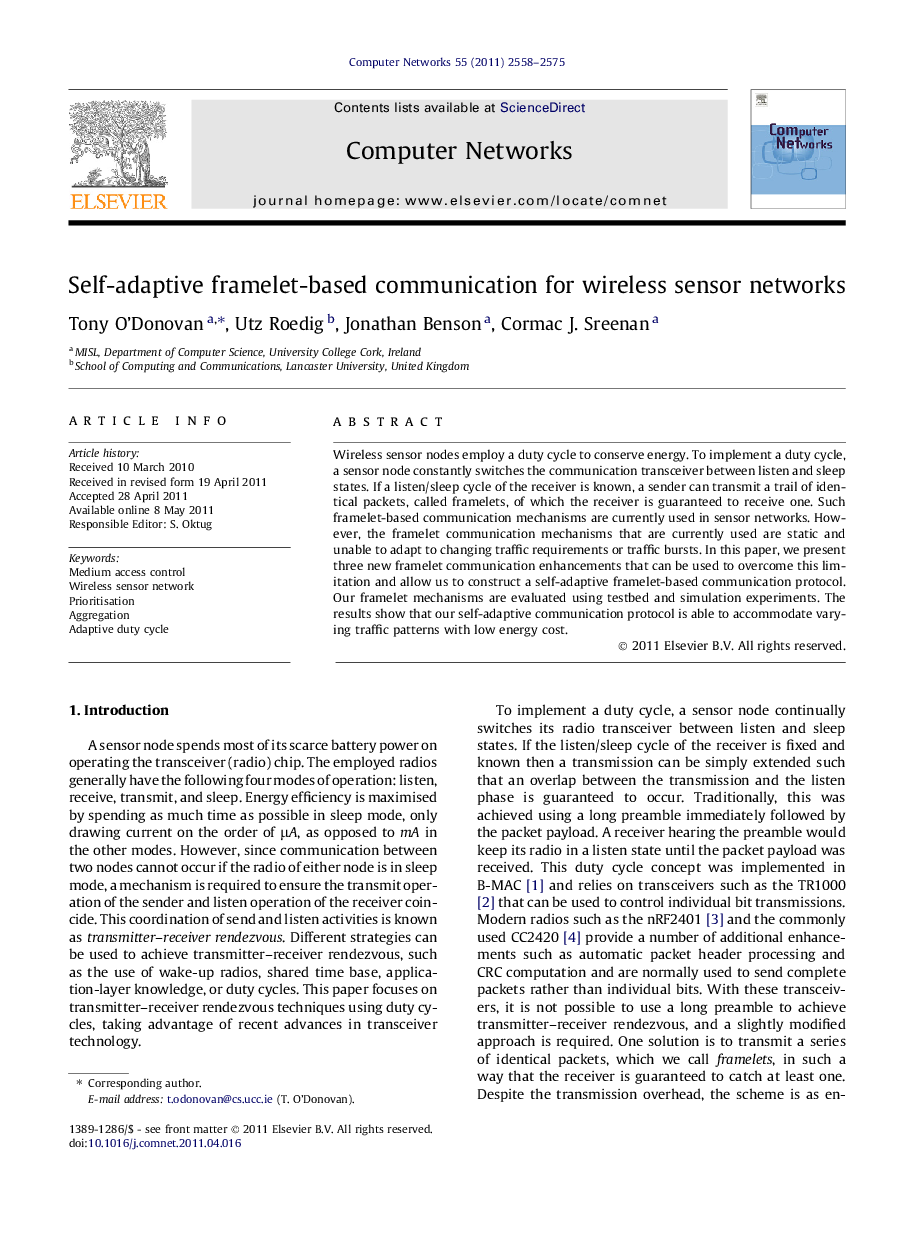| Article ID | Journal | Published Year | Pages | File Type |
|---|---|---|---|---|
| 450960 | Computer Networks | 2011 | 18 Pages |
Wireless sensor nodes employ a duty cycle to conserve energy. To implement a duty cycle, a sensor node constantly switches the communication transceiver between listen and sleep states. If a listen/sleep cycle of the receiver is known, a sender can transmit a trail of identical packets, called framelets, of which the receiver is guaranteed to receive one. Such framelet-based communication mechanisms are currently used in sensor networks. However, the framelet communication mechanisms that are currently used are static and unable to adapt to changing traffic requirements or traffic bursts. In this paper, we present three new framelet communication enhancements that can be used to overcome this limitation and allow us to construct a self-adaptive framelet-based communication protocol. Our framelet mechanisms are evaluated using testbed and simulation experiments. The results show that our self-adaptive communication protocol is able to accommodate varying traffic patterns with low energy cost.
